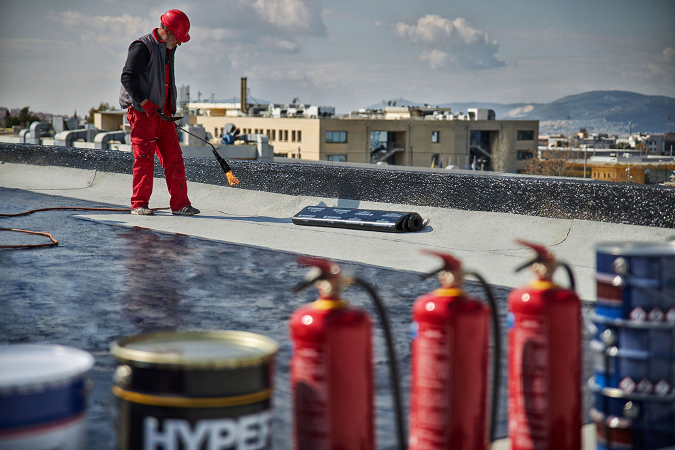
Greece has a Mediterranean climate which is characterised by summers which are hot and dry and winters which are cold and wet. This fact makes the need for building insulation imperative, not only to protect them against external weather conditions (from the cold, the heat, the rain or more rarely snow, solar radiation, etc.), but also for energy efficiency.
In Greece, the energy consumption of buildings accounts for 36% of the overall energy demand, while in the 2000-2005 period alone, energy consumption increased by 24%.
The potential for energy efficiency is significant, given that in a study conducted only 18% of the buildings had complete thermal insulation, while 82% had partial or none at all.
In particular, in the case of existing building, only:
A construction to offer economy in its lifelong use, should have proper thermal insulation around all vertical surfaces, its foundations or pilotis, and its pitched or flat roof, i.e., all the surfaces from which thermal energy can escape.
Given the economic crisis that has plagued Greece and the rising costs of electricity and fossil fuels (oil, natural gas, etc.), buildings without proper thermal insulation cause significant financial problems to households, which are unable to meet the cost required by heating and cooling systems to ensure proper thermal comfort conditions.
According to studies, the environment is at risk because of human activity. The main source of pollution is the burning of fossil fuels for energy production. The main energy-consuming sectors are industry, transportation and buildings. The building sector in Greece accounts for 45% of the overall carbon dioxide (CO2) emissions, a gas that is responsible for the greenhouse effect on the planet.
European policy aims to reduce greenhouse gas emissions by 20% by 2020. In fact, they offer citizens subsidies of up to 60% with the “Home savings” programme, so they can install insulation and by doing so contribute to environmental safety.
It is important to realise the ever-increasing benefits of rooftop insulations and wall insulations such as: ensuring comfortable living, savings in the operation and in the initial installation of the heating, the prevention of damages, thus lower maintenance costs, environmental protection and extension of the building’s lifespan.
The thermal insulation cost is necessary and efficient because it is amortised in a short period and contribute to energy efficiency in the buildings’ remaining years.

